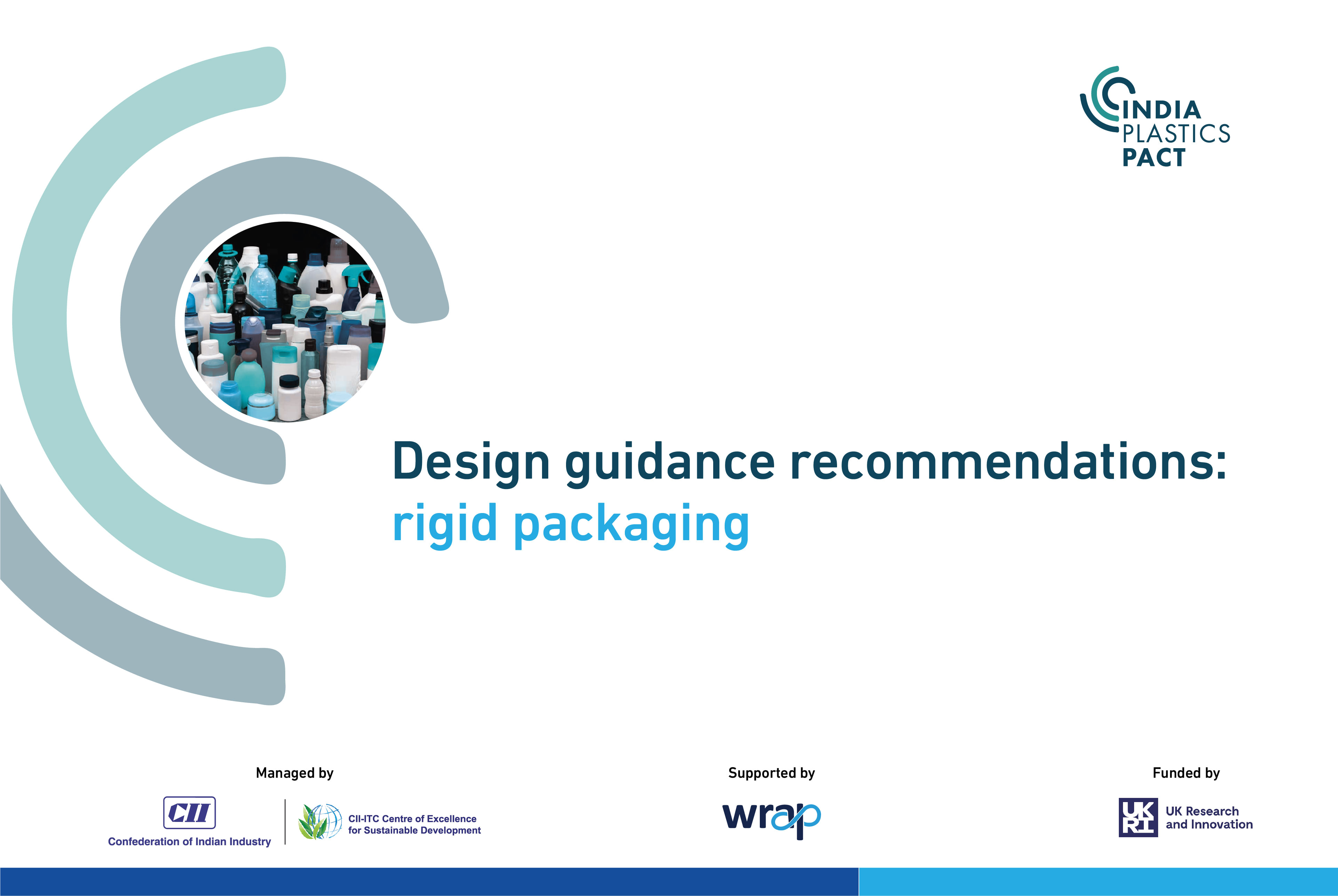IPP designing for recyclability
India Plastics Pact (IPP) has formulated design guidelines on how design choices affect recyclability of packaging and maximise recyclability. These practices will percolate down through the supply chains of the large brand owners and help make packaging more recyclable in the Indian context
25 Jul 2023 | By IPP Secretariat
The packaging sector is the largest consumer of plastics, accounting for 31% of total global plastics consumption. In India, 56% of all plastic resins consumed went into packaging applications; given that many of these applications, especially in the FMCG sector, are used for short durations, packaging waste has become a significant problem.
After consumer use, discarded packaging can be collected, segregated, and recycled after which, given the appropriate regulatory support, it can be used back in packaging. Encouraging the incorporation of recycled content into packaging will create a market for recycling and reduce the need to extract virgin resources.
It is crucial to design packaging for recycling. If the post-consumer plastic waste material is perceived to be valuable, it will be collected and traded/sold, preventing its accumulation in the urban, rural, and natural environment. Design aspects would address the different elements of packaging formats – seals, caps, lids, labels, inks, for example – minimising and eliminating components that are problematic to recycling.
Bridging the gap across the supply chain
As per IPP’s first annual report: In India, a large number of packaging manufacturers are medium and small-scale enterprises who stand to benefit from information and guidance on changes in processes or designs which can have a large impact on recyclability of packaging once it appears in the waste stream.
The organisation’s guidance documents describe how design choices affect recyclability of packaging and recommend practices that will maximise recyclability. Signatories to the Pact adopt the design guide’s recommendations as part of their activities aimed at achieving the Roadmap to 2030 targets.

Of the two broad packaging formats, rigid and flexible, rigid formats make up nearly a third of the plastic packaging placed on the market. These are quite efficiently recovered, collected, and recycled, as they are easier to collect than flexible formats and fetch a better price in the waste material value chain. The fact that rigid packaging structures are largely mono-layer and mono-polymer structures, recycling is relatively easy and widespread. For this reason, guides for rigids packaging were prioritised; a flexible packaging design guide will be brought out in the near future.

In India, over a million tonnes of PET were used for packaging in 2021, mostly for liquid beverages. Given PET’s widespread use, robust collection systems, and excellent recyclability, designing PET bottles for recyclability will ensure that collection is maximised and that they are recycled at the highest possible level, that is, in a closed loop.
No one solution, and no one stakeholder in the value chain can bring about the required change at the required scale. Thereby, IPP is a platform that brings together stakeholders from across the value chain to create a circular economy for plastic packaging in India.
Launched in 2021, the Pact’s Secretariat is hosted by the Confederation of Indian Industry (CII), and is supported by WRAP, a UK-based NGO. At present, 49 signatories work collaboratively to achieve the Pact’s ambitious 2030 targets.
In the coming months a design guidance for non-food contact HDPE bottles will also be released. To access other publications from the India Plastics Pact Click here.


